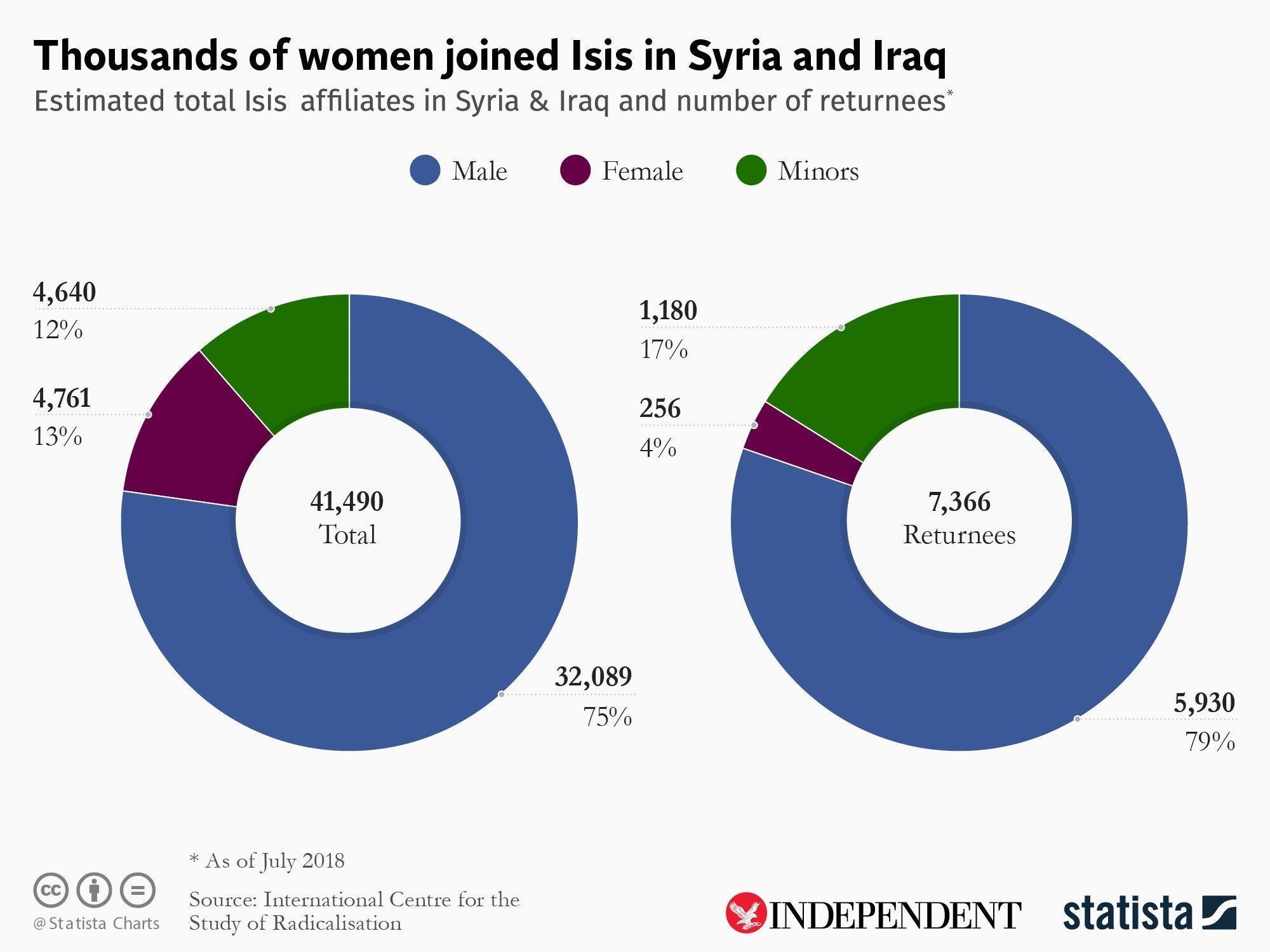European countries push back on Trump demand to repatriate captured Isis fighters and families
Rift between US and Europe over what to do with captured Isis suspects widens
Your support helps us to tell the story
From reproductive rights to climate change to Big Tech, The Independent is on the ground when the story is developing. Whether it's investigating the financials of Elon Musk's pro-Trump PAC or producing our latest documentary, 'The A Word', which shines a light on the American women fighting for reproductive rights, we know how important it is to parse out the facts from the messaging.
At such a critical moment in US history, we need reporters on the ground. Your donation allows us to keep sending journalists to speak to both sides of the story.
The Independent is trusted by Americans across the entire political spectrum. And unlike many other quality news outlets, we choose not to lock Americans out of our reporting and analysis with paywalls. We believe quality journalism should be available to everyone, paid for by those who can afford it.
Your support makes all the difference.European countries have pushed back on a US demand to repatriate citizens who went to Syria to join Isis, deepening a split between Washington and its allies on the issue.
More than 800 European citizens are currently being detained in Syria on suspicion of fighting for Isis – many of them were captured in the last two months during the battle for the terror group’s last remaining territory.
President Donald Trump called this weekend for European governments to “step up and do the job that they are so capable of doing” by taking the suspects back.
“The United States is asking Britain, France, Germany and other European allies to take back over 800 Isis fighters that we captured in Syria and put them on trial. The caliphate is ready to fall. The alternative is not a good one in that we will be forced to release them,” he wrote on Twitter.
But the UK, France and Germany have been reluctant to bring home Isis suspects, fearing that they would pose a security threat upon their return.
“It is certainly not as easy as they think in America,” German foreign minister Heiko Maas said in response to Trump. “These people can come to Germany only if it is ensured that they can immediately be taken into custody.”
Germany’s interior ministry said on Monday that Germany citizens have the right to return “in principle”, but suggested that would only happen with consular access, which isn’t in place in Syria at the moment.
France and the UK also appear to be in no rush to bring them home. But the planned withdrawal of some 2,000 US troops from Syria has made the issue more urgent.
The Syrian Democratic Forces (SDF), a US-backed militia that is holding the suspects, has said it does not have the capability to continue holding them indefinitely. When US forces go, its resources will be stretched even further.
Abdulkarim Omar, co-chair of foreign relations in the Kurdish-led region, told Reuters on Monday that the detainees were a “time bomb”, and that they could escape in the event of an attack that may follow the US withdrawal.
That prospect was addressed by France’s justice minister Nicole Belloubet on Monday.
“There is a new geo-political context, with the US withdrawal. For the time being we are not changing our policy,” Ms Belloubet, told France 2 television. “At this stage France is not responding to (Trump’s) demands.”

Both France and Germany have suggested that Isis suspects be tried in Syria or Iraq, but the mechanisms for doing so do not currently exist.
The fate of British Isis suspects held in Syria has been thrown into the spotlight in recent days following the discovery that Shamima Begum, a 19-year-old British woman who left the UK to join Isis four years ago, was among those detained in the country.
The home secretary, Sajid Javid, has previously said that he would move to block any British citizen suspected of joining Isis from returning.
Mr Javid said of her case: “My message is clear: if you have supported terrorist organisations abroad I will not hesitate to prevent your return.”
“If you do manage to return you should be ready to be questioned, investigated and potentially prosecuted,” he told The Times.
But the justice secretary David Gauke has said that the UK may be powerless to stop her returning.
“Obviously we have to act within the powers that we have,” he told Sky News. “It is the case we can’t make people stateless, but without getting too drawn into the specifics, the approach that we take as a government, which is the responsible one, is to ensure that we protect the British public. That is the key thing.”
There are an estimated 800 foreign fighters being held in prisons by the Syrian Democratic Forces, along with around 700 wives and 1,500 children in camps.
Among them are around 20 British women and children, and seven British men. A total of 150 French citizens are thought to be held, including 50 adults, according to military officials cited by Reuters.

Join our commenting forum
Join thought-provoking conversations, follow other Independent readers and see their replies
Comments